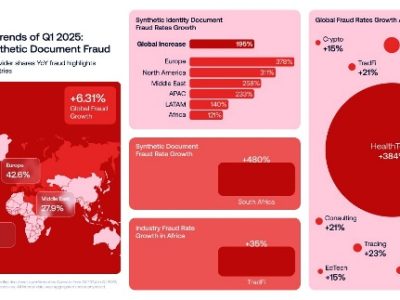Not for me!
Habits die hard. In Nigeria’s quest for faster uptake of e-payment, not only technology issues but also cultural habits are conniving to hamper faster uptake of e-payment. People still love holding on to cash and are still not so comfortable punching at ATMs or POS to process transactions even in cities with prevalent Internet access and e-payment options.
While transfers between states now happen much faster and with ease than say five years ago, traders still prefer to have their millions stuffed in boxes while in transit from their trade points to where they make orders. The risks of highways robbers and even road accident do not appear to pose a problem. “Bank transfer? No way, I prefer to see my money, hold my thing and use it as I like,” said Chibueze Nnamdi, a trader who specializes in auto parts and frequently shuttles between the eastern part of the country and central Nigeria. Nnamdi is fully aware that there are transfer options that could facilitate his business with ease without fear of being robbed. He says he prefers his peace of mind from seeing his own cash with him; and would rather contend with robbers on the highway than “go through all those protocol inside the bank to collect my own money O!”
The likes of Nnamadi are many but stakeholders are generally agreed that businesses are going online and are making greater use of e-payment facilities to enhance their capacity to deliver service to customers. The uptake is encouraging in areas where cashless policy has gone into effect majorly promoted by banks, the increasingly ubiquitous Internet and computer terminals as well as mobile devices.
The Central Bank of Nigeria (CBN) has licensed several mobile money operators joining banks to help drive e-payment systems. To transfer money or make purchase for an increasing number of Nigerians requires just a click whether in Abuja, Lagos, or Port Harcourt. According to the CBN’s Economic Report for the first half of 2012, e-payment transaction surpassed the N1trillion mark in the first six months of 2012. The report states that, the value of electronic card transactions rose to N1, 014.71 billion in the first half of 2012 from N764.14 billion in the first half of 2011, while the volume increased from 167,962,665 in the first half of 2011 to 185,078,223 in the period under review. As of today, electronic transactions have increased to 20% from less than 5%, 18 months after CBN commenced cashless policy in Lagos.
Even then, banks are not applying the brakes on their imagination. Banks are keying into the explosive growth of social media to expand their banking services and capture new customers from once uncharted market. One of the country’s leading banks, GTBank has unveiled Facebook Banking inspired by the huge number of social media users who still don’t have bank accounts or who still come to the banking hall to do mortar and brick transaction as in the pre-Internet years. As of June 2013, there were one billionmonthly active users on Facebook, over 500 million tweets per day and about 8.6 trillion SMS text messages sent a year. This is changing everything-the way people interact, learn, live and get entertained. It is also certainly changing how banks want to do banking and how people may carry out financial transactions.
What is driving the driving e-payment? Competitive advantage, increase market share access to the global market, transparency and efficiency of financial transactions both in the private and public sector; the future of banking is on e-platforms. No bank wants to be left out.
But it is not all cheering despite the pulsating growth of e-payment in Nigeria.The 2011 Government E-Payments Adoption Ranking; a global index and benchmarking study based on a scale of 100 ranked Nigeria at No. 62 position. The reasons do not completely rest on poor Internet access outside of major cities. One big non-technical challenge faced by electronic payments is cultural attitude to both banking services and the more novel electronic payment systems. A greater percentage of Nigerians have never had any banking experience. A breakdown of Nigeria demography shows that the country has a total adult population of 87.9 million people, with 71.1% living in rural areas, 35.5% of rural adults are farmers.Mobile phone ownership is 84.9% in urban areas and 55.6% in rural areas. Only 8.1%of adults have some form of tertiary education in an adult population profile of 71.1%.
This means even if the technology issues are sorted out, the cultural issues could still inhibit growth of e-payment. Understanding where e-payments fits in culturally and then trying to make it all work for everybody is a huge task for its promoters. Perhaps, it may just be the biggest barrier to its success. Banks and the entire financial system must continuously seek to educate and familiarize consumers in the use of electronic and other technology based financial applications which are more efficient and cost effective.
At the second edition of e-Payment for Government Summit organized by the Electronic Payment Providers Association of Nigeria (E-PPAN)in Abuja recently, the professional body with a holistic, results-oriented approach to driving the growth of e-payment industry in Nigeria asserted that what is fundamental to the growth of e-payment is the confidence the public has in its convenience and security. For Mrs. Onajite Regha, the Executive Secretary/CEO of E-PPAN, the three essential recipes for the success of e-payment must be hinged on acceptability, affordability and availability. Her words: “to pass the acceptability test, the process for any system developed must be trusted by all. To achieve availability, the product must be universal and accessible to all. Thus, the infrastructure must be efficient to achieve these. And of course, it must be a low cost system, so that it can be affordable by all.”
On top of the list of the inherent challenges still hindering e-payment transaction in Nigeria is network service failure. The devices and terminals being used for e-payment frequently experience network failures, resulting in customers losing money, time and energy. For this reason, many still prefer to enter the banking hall resulting into long queues in some banks. ATMs do not always work. You need cash urgently and you want to quickly use the ATM? You may not be lucky to leave there in an hour.
Cyber criminals have also launched out to compromise e-payment systems and sometimes put doubts in the minds of prospective users. An average Nigerian sees this perceived risk as an opportunity of avoiding e-payment platform. In pursuit of monetary and financial stability, the CBN has consistently sought to work with other stakeholders to ensure that electronic transactions can be made in a safe and efficient manner.
Despite all these snags, it is certain that citizens will have their own devices and they will want to use them for electronic payments on the go. This creates the need to rethink the way we approach electronic payments. Electronic payments experts have suggested that Nigeria must be ready for big data and government has a role to promote growth, efficiency and effective collaboration. One card should serve more than just a payment card; it can as well serve as a National ID card and a driver’s licence. As is becoming the norm in some countries, the tendency is to use a simple unique smartcard that combines biometrics based identification and payment technologies. The smart card supports multiple usages across various segments of the economy including identity management, mass transit system, social benefit transfer, healthcare insurance & payment, and tax administration & management.
Group Managing Director at Interswitch, Mitchell Elegbe, highlighted the role of government in addressing current constraints facing the initiative to include more public private partnership collaborations, more investment in ICT Infrastructure, more concerted actions to address behavioral constraints, more government enforcement mechanism, and development of proven security measures and cost reduction of ICT deployment through outsourcing.




























